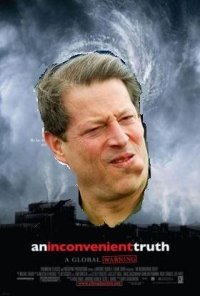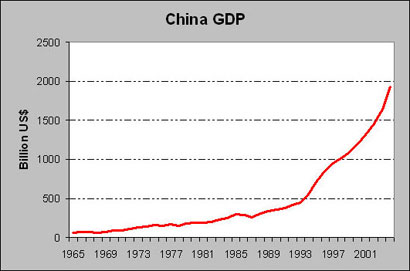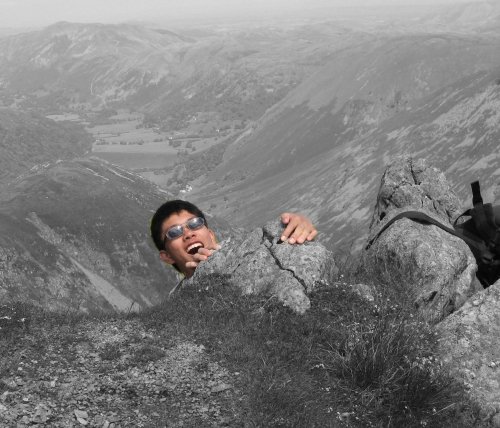Overwhelmed is an oft-used word, but for me, a British public school kid going to what I now believe to be the unequivocally the best university in the world for myself, it is an appropriate one.
I flew from Heathrow in the economy section of the upper deck of a Virgin Atlantic Boeing 747 over South Greenland, Hudson Bay and the Rockies, and landed on Sept 2nd, well in advance of Int’l Student Orientation (ISO) on the 11th. Over the course of the week, in between setting up bank accounts, getting a phone contract and buying a camera (Canon Rebel XS + 18-200mm lens – blog post about it later!) I took the opportunity to explore the bay area. Golden Gate at night from the Marin Headlands is spectacular. The road on which Steve Jobs lives is beautiful. The wildlife on the Monterey coast is diverse and exciting. The weather is unbelievable. I visited Mills Hospital where I was born, and caught a glimpse of the house of my babyhood on Diaz Lane in Foster City; coming from drizzly, noisy, bustling London (which I of course still love), I am convinced that this part of California is the best place in the world to live.
And of course, I visited the campus on which I am to spend the next four years of my life, and it is best described as … indescribable – one really has to see it for oneself to understand truly what all the fuss is about. At every turn, from every angle, at any time, the sheer quality of the facilities and the opulence of the college blows me away. Just to illustrate with what I know of the sports facilities: the Arrillaga Sports Facility has a pristine fitness centre with modern equipment including some I’ve never seen before, a rock climbing wall with 6 routes set every week and an enormous basketball court. On the other side of the lawn, the Ford Recreation Centre has a gymnastics gym larger than my secondary school’s sports hall. Behind the tennis courts are four outdoor swimming pools and an American Football stadium. South of the main university is a Stanford-owned area of gently rolling hills larger than Richmond Park in London known as ‘The Dish’, named for the large satellite dish placed at its centre. West of that area is SLAC, the longest linear particle accelerator in the world, a luxurious golf course and a stables. Ridiculous is a word that springs immediately to mind. Ridiculous awesomeness. Plus campus has hummingbirds and a bamboo plantation.
On the 11th, ISO started. Apart from the cheesy, artificial and often cringeworthy icebreaker activities, the fire alarm that woke up the whole dorm at 3am, the most tuneless anthem I’ve ever heard (‘Hail Stanford Hail’) and the beach trip which was overcast and windy (ergo cold), I now genuinely believe that I couldn’t have ended up anywhere better. On the second night we had the opportunity to eat dinner with a faculty member. He teaches energy options, and in the ensuing discussion, I discovered that I am in the company of a class of, for lack of a better word, amazing people. The sheer knowledge, intelligence, passion and lust for knowledge infused with exceptional self-confidence (but not arrogance), communication skills and life experiences of some of the people I’ve met makes me feel like I’m in the company of an unequivocally brilliant set of people and that I’m going simply to love the next four years of my life. There were two debaters who took part in that discussion and both had a truly ridiculous amount of knowledge and breadth. They had exceptional understanding of the argument from political, social, economic and scientific perspectives, and the arguments and ideas they came up with and articulated eloquently were simultaneously inspiring and overwhelming. I subsequently met someone has very similar academic ambitions as I (physics with a CS twist) and is actually doing the same IHUM (Intro to Humanities) course as me, for the same reason (interest in philosophy). An appreciable proportion of the people I’ve met do programming to a level that exceeds casual interest (a fellow Brit did got through to the British Informatics Olympiad finals … and also does rock climbing). The people here are a hand-picked bunch of ludicrously well-rounded students, and it really makes a difference; I have yet to meet someone who falls into a stereotype – we have athletic, artistic and eloquent techies and logical, philosophical and scientific fuzzies. At first I had some deep academic concerns about choosing Stanford over Cambridge for precisely this reason – I believed that well-roundedness necessarily precludes expertise in any particular area. As it turns out, I was completely wrong, and the opposite is abundantly true. At the convocation speech, the following joke was made: “what do you call someone who only speaks one language? American”. But from what I can tell, a very large proportion of my peers are bilingual (at least). And speaking of people, Reed Jobs is in the same class as me (Stanford 2014) and I saw his dad, the CEO of Apple, at convocation. Just putting that out there…
Then New Student Orientation (NSO) began. All over campus, the freshmen, a.k.a. ‘frosh’ (if you’re in the UK, read: ‘freshers’) started to arrive and the entire campus had a festive atmosphere. Each new arrival was personally raucously and vociferously greeted by a bunch of ecstatic Residential Assistants (RAs – sophomores and upperclassmen who have volunteered to help with freshmen dorms), and I finally met my roommate! Having gone to a day school and still used to the single-room paradigm at universities, I was slightly nervous about this but it seems Stanford really did their research and have come up with a good match – I think this arrangement will work out very well indeed.
I can’t talk about everything I like / am impressed with / have noticed. I haven’t even mentioned how beautiful the campus is, or how I have yet to see a raindrop. But here is a selection of stuff I happen to be able to remember off the top of my head.
Dorm Themes + cheers
Every dorm has a theme – mine (Otero) is ‘Moterotown’, a mutation of Motown; Robles has ‘Pirates of the CarRoblean’; Burbank’s theme is my personal favourite: ‘The Burbank Theory’, based on the famous TV comedy show ‘The Big Bang Theory’. They even have a poster pointing to a place on the couch saying ‘Sheldon’s seat’!
Further to this, there is a lot of class and dorm pride. Each dorm has several cheers, so at large events we can make our presence loudly felt (we also like shouting ‘FOURTEEEEEN!’ to demonstrate class pride), and after overcoming the initial self-consciousness it’s good fun and seems to contribute to a sense of family, spirit and bonding; I can’t think of a less clichéd / cheesy way of putting it but I’m absolutely genuine. According to the guy I bought my SLR from, his son went to Stanford and his freshman dorm was also Otero, and every year, for some reason or other, the people always bond really well and build longer lasting and deeper friendships with each other than at other dorms. I can see this being true of our dorm this year (our discussions are open and honest, and other people have commented on our spirit and energy when cheering) which leads me to suspect there’s some selection process going on, in which case I’m proud and delighted to have been chosen for Otero. Oh yeah – every dorm has a baby grand piano, a table tennis table and a flatscreen TV in its lounge.
There’s a football game tonight – Stanford v Wake Forest – at our stadium and since I’m irreversibly caught up in school pride, I will be attending and noisily supporting the two footballers who happen to be in my dorm (they’re *enormous*!). Relatedly, in events in which we’re going up against Cal-Berkeley, a popular cheer is ‘Beat Cal’.
Academics
Since classes haven’t actually started yet I can’t say much, but we did have a talk on an incredible CS project undertaken by Stanford students on AI. They developed a robot that could recognise images using what seemed to me as a particularly intelligent statistical approach to AI and image recognition and could (for example) walk to the office to get a stapler. There was also a demonstration of reinforcement machine learning in which a toy helocopter was doing ridiculous stunts all on its own. As it turns out, half the people involved in the entire project were undergrads. There are also incredible opportunities here. If all my near-future plans works out, I’ll be getting an inside-scoop tour of SLAC, meeting and possibly working with the quantum computing guys at IBM and meeting Prof. Leonard Susskind, a legendary string theorist. This is why I chose Stanford.
Speeches + discussions
These people really know how to do inspiring speeches. Dr Harry Elam is one of the strongest speakers I’ve ever heard, and at the end of every speech, regardless of the speaker (yeah there have been quite a few…), I’ve felt inspired and excited about being here. And I’m not normally impressed by this sort of thing.
There was also a ‘Faces of the Community’ event which consisted of some cultural dancing / music (e.g. Japanese drums, jazz dancing etc) but also talks from some really exceptional people (low-income, queer, ethnic minorities, disabled) talking about themselves. All their talks struck me as candid, honest, open, courageous – they must be truly great people to be able to accept their situation, and despite it make a real difference in their community, succeed and thrive in one of the world’s leading universities and above all stand up in front of 2000 strangers and open up. There was a subsequent discussion in the Otero lounge and many of my peers expressed similar sentiments to my own. Speaking of which, throughout NSO we’ve been having reasonably regular dorm discussions on multifarious topics, and again the openness and open-mindedness of our small community’s members is remarkable.
Unrelatedly, on another occasion there were some (pretty damn great) musicians in a band who had to do this cringeworthy music-camp style thing encouraging people to listen to each other. They got two volunteers to come up on stage and play the bass guitar, and they ended up giving away two guitars! I’m not sure what to make of that – it’s an incredible gesture, sponsored by some music company, and whether it reflects more the wealth of Stanford’s alumni or the university’s will to get people to try out new things is debatable. I’m not sure what point I’m trying to make (if at all), but something tells me that sort of thing wouldn’t have happened had I chosen Cambridge!
Geekiness
Despite what I said about well-roundedness, Stanford is undeniably geeky, but in a good way. I received an email whose first line read: “Dear awesome members of Group n, where 0<n<=24 && n∈N*". During our first dorm meeting, the Resident Fellow set out the dorm rules, beginning with 'Don't be stupid'. He continued to define stupidity as 'an act that significantly increases the probability of physical, psychological or financial harm occurring to you or someone else' (I personally think it should be 'an act that significantly increases the expectation of the sum of physical, psychological and financial harm occurring to you or someone else' but hey), and gave a load of examples of stupidity. Abstracting everyday concepts and working with them for sake of argument (and/or comedy) is the sort of thing I do on a regular basis; I think I'll fit in just great!
Health
I’ve managed to go on a jog every morning so far, including one 60-minute run which was a result of my getting lost… Californians are normally pretty health conscious but I am determined never to develop a shape whose parameters can be summarised by a radius (i.e. any sort of spheroid). Let’s see how long this is going to last… There was also a swing dancing class as part of NSO which was very reminiscent of Ceroc which I used to do (a bit) in London. It’s actually offered as a 1-unit class and therefore contributes towards a degree. It was also good exercise.
Miscellaneous
There’s a free bus service (‘the Marguerite’) around campus and nearby bits of Palo Alto, which apparently used to be horse-drawn (it’s now powered by hybrids, or something green like that). Stanford is also the most bike-friendly place I’ve ever been – I’ve seen more bike parks around campus than I have in the whole of London, and buses (including the Marguerite) have bike racks on the front.
The food is also pretty good. It’s not quite as luxurious as the specially-arranged food I got whenever I was at Cambridge for events (this includes Trinity, Corpus and St Cats) but it’s very decent, and much better than what I’ve been eating at school for the last ten years.
One thing I’ve noticed is most stuff in America is cheesier than most Brits would expect. The Kennedy Space Centre had some of the cheesiest exhibits I’ve ever seen, and even here the icebreakers and cheering etc. just make me feel self-conscious and uneasy and serious points made in these situations just make me want to laugh!
So yeah. Beat Cal!
I apologise if this post is probably not massively helpful to anyone thinking of applying: it’s most certainly biased, contains only one point of view and it’s written by someone who’s only been here a week. It’s more of a stream of consciousness affair – a disorganised and ineloquent splashing of ideas onto a page, and I haven’t said everything I want to (if I had, I’d’ve written an extremely fat book). I just wanted to say I’m happy, and am sure I made the right decision after agonising for literally months over my choice of Stanford, Harvard and Cambridge. In almost every comparison I’ve subconsciously made of myself with my year group at Stanford, I’ve felt inadequate and overwhelmed. I used to think I was pretty clever, but I now know that’s really not the case. For the first time in my life I’m acutely aware that I’m in the company of people who will shape the future and create the world of tomorrow – I’ve finally found a group for which I believe it. I feel that this is where I belong but simultaneously massively outclassed in every aspect. It’s bizarre, and wonderful.







 Posted by arctanb
Posted by arctanb 

















 Existent government measures have proven ineffectual at best. For a while law enforcement worked: the RIAA
Existent government measures have proven ineffectual at best. For a while law enforcement worked: the RIAA





















